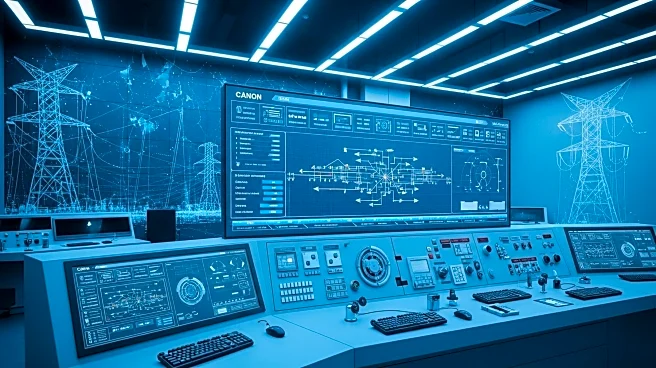What's Happening?
At the Climate Forward conference in New York City, Scott L. Strazik, CEO of GE Vernova, addressed the challenges posed by President Trump's energy policies, particularly his opposition to wind power. Strazik highlighted the growing demand for electricity in the U.S., driven by artificial intelligence's increasing power needs. Despite this demand, Trump's policies have slowed the deployment of renewable energy sources like solar and wind. Strazik discussed how GE Vernova is navigating these challenges to meet the energy demands and the implications of AI on the American power grid.
Why It's Important?
The discussion at the Climate Forward conference underscores the tension between technological advancement and energy policy. As AI continues to expand, its energy consumption grows, necessitating a robust and adaptable power grid. President Trump's policies, which hinder the growth of renewable energy, could impact the ability of companies like GE Vernova to meet these demands. This situation highlights the broader implications for the U.S. energy sector, potentially affecting innovation, sustainability, and economic growth.
What's Next?
GE Vernova and other energy companies may need to explore alternative strategies to cope with the restrictions on renewable energy deployment. This could involve increased investment in other energy sources or lobbying for policy changes. The ongoing debate over energy policy and its impact on technological growth is likely to continue, with stakeholders from various sectors weighing in on the future direction of U.S. energy strategy.
Beyond the Headlines
The clash between energy policy and technological needs raises ethical and environmental questions. The reliance on non-renewable energy sources could exacerbate climate change, while the slow adoption of renewables may hinder progress towards a sustainable future. This situation calls for a reevaluation of energy policies to balance economic growth, technological advancement, and environmental responsibility.











